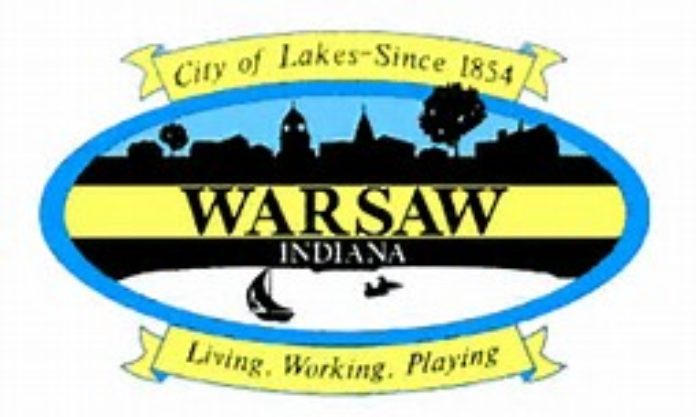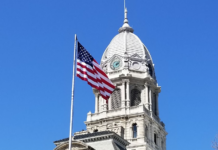The price tag for the upcoming expansion of Warsaw’s sewage treatment plant appears to be in the neighborhood of $30.5 million.
Five bids were opened Thursday and the Board of Works is expected to consider a recommendation when they meet Friday morning.
The five bids for construction were: Bowen Engineering, Indianapolis, $27,488,000; Fetters Construction, Auburn, $30,499,000; Kokosing Industrial, Westerville, Ohio, $25,710,750; Williams Brothers Construction, Peoria, Ill., $26,880,000; Thieneman Construction, Westfield, $27,173,000.
The lowest bid is within $100,000 of an engineer’s construction cost and Mayor Joe Thallemer said he is confident the low bid will meeting all criteria.
The remaining $5 million is for engineering, legal and accounting costs.
Meanwhile, council on Monday approved on first reading an ordinance needed for the sale of bonds to finance the project.
Exact figures, based on the winning bid, still need to be added to the ordinance. Those will be included for the second vote that’s expected to happen when council meets Nov. 5.
Council OK’d the ordinance on first reading by a 6-1 vote. Councilman Ron Shoemaker voted no, saying he’d rather wait until the numbers are in place.
“I personally would like to see the sticker price,” Shoemaker said. “It’s almost like going to the bank and saying ‘I’m going to buy a car. I don’t know what they’re going to sell me, but I need fifty grand.’”
Randy Rompola, a partner at Barnes & Thornburg, reminded council they could delay the vote, but that would mean they would have to cast two votes on the issue on the same night.
Rompola warned that a delay could be problematic.
“If there were not unanimous consent at the November meeting, the timing of the publications of the notices that have to be published after the adoption of the bond ordinance could cause problems with us being able to close by the end of the year.”
Councilmember Diane Quance asked if the council could receive the final numbers from the bond issue and the rate ordinance earlier than the normal time council packets are distributed, and Rompola said they should be able to accommodate that.
Council also is expected to tackle a related rate ordinance for the project when it meets Nov. 5.
City officials a year ago thought the combined two-phase rate hike would represent an overall hike of 38 percent for the average residential customer, but Thallemer said they believe the combined rate hike could be closer to 24 percent.
The average customer last year saw a hike of about 19 percent.
The lower hike was achieved by switching from a flat rate to charges developed by a cost-of-service study. Thallemer said some small industry could see a bigger hike in rates as a result.
The bond ordinance reviewed Monday limits the city to financing no more than $35 million for the project. The final version will include a smaller cap, Rompola said.
The city is relying on a state program that will allow it to lock into a 2 percent interest rate for about $25 million of the project. The interest rate for the remaining portion should become known in about a week.
The treatment plant, at times this year, has been exceeding capacity, adding pressure to move forward with what appears will be the biggest public works project in the city’s history.
Capacity at the plant would increase from 3.9 million gallons a day to 6 million gallons a day.
The expansion is expected to be competed by July 2020.
By the end of May 2020, the city will be under a new phosphorous limit set by Indiana Department of Environmental Management. Davison said they should be able to meet that requirement before construction is complete, according to Brian Davison, utility manager for the wastewater department.
Davison was asked if the city had received any warnings from the state. He said no.
“I suppose if we were to discontinue this process completely, we should probably receive something at that point, but they know we’re moving ahead at this point,” Davison said.
If financing is finalized, money would be available by mid December and construction could begin then, Rompola said.





